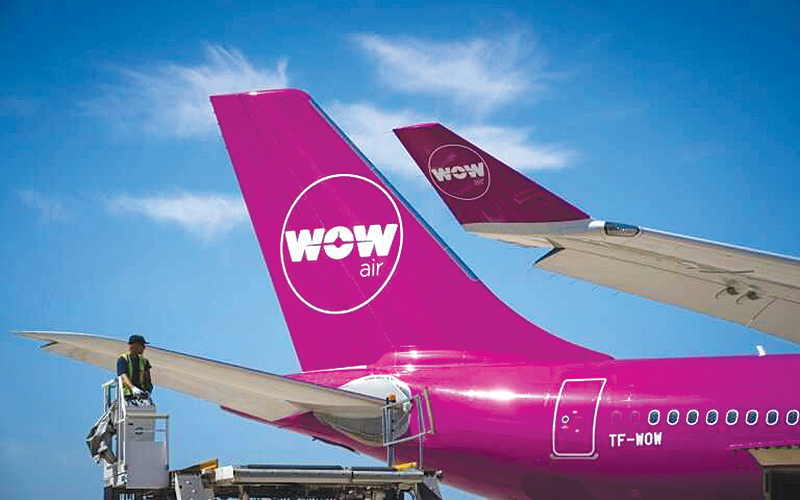10 low-cost airlines collapsed in 2018
PARIS: Iceland's budget carrier WOW Air collapsed yesterday, the latest in a string of low-cost airlines to go under after the fiercely competitive industry suffered from rising fuel prices last year. Here is some background on the challenges plaguing the sector.
Almost 10 low-cost airlines collapsed in 2018, including Belgium's VLM Airlines, Denmark's Primera Air and Cyprus' Cobalt Air. This year has not started much better. WOW Air, which transported more than a third of people travelling to Iceland, ceased operations and cancelled all its flights on Thursday after failing to find investors to save it from going under.
In February Berlin-based airline Germania, which transported more than four million passengers a year, cancelled its own flights and filed for bankruptcy.
Other ailing budget airlines have only narrowly escaped folding this year, such as the British Flybe, which a consortium led by Virgin Atlantic is bidding to buy for just one penny per share.
Even the Irish budget airline Ryanair-the industry leader-has felt the pressure. It is restructuring after a net loss of 20 million euros ($22 million) in the last three months of 2018, its first quarterly loss since 2014.
'Unrestrained competition'
Competition is fierce for short-haul flights in Europe as airlines drop prices hoping to win over thrifty holiday seekers, pushing their profit margins lower. The average cost of a Ryanair flight, for example, is now below 30 euros. Olivier Fainsilber, aviation analyst at consultancy Oliver Wyman, said it was a time of "unrestrained competition" after relatively low barriers allowed many new companies to enter the market. "Economic Darwinism has always been strongly at work in the airline sector," he said.
"To be successful you must be very efficient."
Companies have also faced stiff competition from low-cost subsidiaries set up by big operators such as British Airways parent company IAG. Sebastian Zank, an analyst at Scope Ratings, said Germania's collapse "shows again that to survive in Europe's crowded sector, carriers need to be niche players or have an extensive network as is the case with budget leader Ryanair and multi-brand operators like Lufthansa Group and IAG".
"The marginalization of smaller airlines and more industry consolidation appear inevitable," he added.
Oil slick
Surging oil prices have added to the industry's woes. At the height of the spike in July 2018, the price of an oil barrel nearly reached $75 -- up from $50 at the same time the previous year.
"There will always be highs and lows, but it is when a period gets tense that we see who manages to hold on," said Fainsilber. "You need to have a little war chest."
European airlines were also hit by a drop in the euro, which lost five percent against the dollar in 2018. The outlook for this year is not as bleak, with passenger numbers expected to remain stable, however oil prices have ticked upwards. "There is also growth, it's just that the incline is not as steep as in the past," said Fainsilber. - AFP











